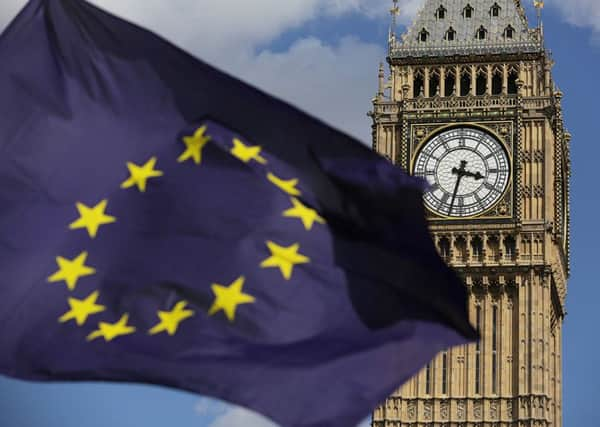YP Comment: Why Britain backed Brexit. Immigration concerns ignored


Another omission indicative of Labour’s internal splits on the day that MPs endorsed Theresa May’s Article 50 negotiating strategy, it was the political elite’s failure to recognise legitimate public concerns about immigration and overseas aid that fuelled last June’s referendum result.
Take immigration. A National Conservation on the issue begins in Bradford today, an initiative which is being run by British Future and Hope Not Hate in conjunction with Parliament’s Home Affairs Select Committee. Part of the legacy of the late Batley & Spen MP Jo Cox who suggested such a dialogue in a typically thought-provoking column for The Yorkshire Post published six days before her senseless murder, it should not have taken her death, and then the entirely separate endorsement of Brexit, for leaders in London, more metropolitan in their outlook, to acknowledge the concerns of people in other parts of Britain who had growing misgivings about the forces of globalisation. Given this, it’s vital that the findings are taken seriously.
Advertisement
Hide AdAdvertisement
Hide AdIt’s the same with overseas aid. Though a totemic symbol of this country’s compassion, it cannot be right that so much of the Department for International Development’s grants ended up in the hands of the fraudulent, in order for the Government to laud 0.7 per cent of GDP being spent on projects in the developing world, when the UK cannot afford adequate care for its elderly. Even the former minister Grant Shapps despaired of the profligacy last month when he effectively called for DfID to be amalgamated with the Foreign Office so there was a greater likelihood of aid being linked to policy. And while MPs from all parties have every right to challenge Ministers, there will be anger if they ride roughshod over the wishes of the 52 per cent of voters, albeit a small majority, who backed Brexit. Instead they need to better understand why the country voted the way it did.
The Battle of Clifford’s Tower
HISTORIC battles at Clifford’s Tower, the largest remaining part of York Castle, are nothing compared to the current conflict about English Heritage’s plan – endorsed by local councillors – to build a controversial concrete and glass visitor centre and souvenir shop at its foot.
However some perspective is required as conservation campaigners and opponents launch a crowdfunding appeal in the hope of persuading the High Court to intervene; they have already generated more than £10,000 for this planning war. Like all tourism destinations, York has to move with the times in order to broaden its visitor appeal.
Despite its priceless Roman heritage, York is no exception to this – it’s in a fight for the tourist pound. And, furthermore, it’s not in the reputational or financial interests of an august body like English Heritage to compromise national monuments in its guardianship with ill-conceived plans that are out of keeping with the local environment. This appears to be an unnecessary distraction when York should be pulling together to ensure that the city is promoted, and marketed, as the UK’s number one visitor destination outside of London.
Shannon’s story
Advertisement
Hide AdAdvertisement
Hide AdIT goes without saying that The Moorside, the BBC drama recounting the Shannon Matthews kidnap hoax, featured another masterclass by the acclaimed actress Sheridan Smith who will surely win a host of awards for her portrayal of Julie Bushby who galvanised the public search for the missing schoolgirl. Her co-stars were equally meritorious.
A chilling story about how nine-year-old Shannon, and a local community, was betrayed by the youngster’s heartless mother Karen in 2008, it’s also a gritty story of how residents of the maligned Dewsbury Moor estate pulled together despite their benefit-dependent lifestyles being besmirched by many, including a youthful David Cameron who said it was symptomatic of ‘broken Britain’ and those areas “where decency fights a losing battle against degradation and despair”.
Ahead of the concluding episode charting the estate’s reaction to Shannon’s discovery and the wider deception, it’s indicative of this shocking story’s lingering legacy nine years on that public opinion is so divided about whether this was public service entertainment or gratuitous voyeurism.